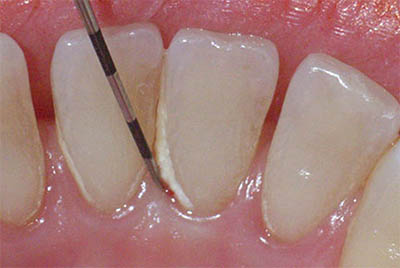Are you worried about gum disease affecting you at some point in your life? Did you know that there are many systemic diseases associated with and caused by gum disease? If you haven’t already, there’s a good chance that you might, considering that gum disease affects over 70% of adults in the United States today. Fortunately, the condition isn’t hard to prevent or to treat if it develops. However, not treating gum disease can have severe consequences for your oral and overall health. Aside from swelling and discomfort in your gum tissue, gum disease results in the destruction of your teeth’s support system, and the bacteria responsible for gum disease can damage other tissues in your body, as well.
The Origin Story
How does gum disease form? It begins with the unchecked buildup of dental plaque, which sticks to your teeth and contains hundreds of types of bacteria. When your body registers the presence of harmful microbes, your immune system responds by enacting inflammation to drive the germs out and prevent infection. The mouth germ, Porphyromonas gingivalis, survives by evading your body’s inflammatory response, resulting in excessive inflammation as your body continues to hunt down the bacteria. The chronic presence of oral bacteria on your teeth and gums can lead to rampant inflammation that results in aggressive gum disease.

Simple plaque buildup allows bacteria to be released into your bloodstream to be circulated around the body. Bacteria sets up localized inflammatory responses which can cause many systemic diseases.
The Early Stages of Infection
Gingivitis, the early stage of gum disease, is your last chance to prevent the infection from becoming a full-blown dental disease. Gingivitis is marked by red, swollen gums that bleed on occasion, usually when you brush and floss your teeth, and may include the beginning stages of gum recession (separation from your teeth). Despite such destructive symptoms, gingivitis doesn’t typically cause discomfort and can fool patients into believing that the situation isn’t serious. Left unchecked, gingivitis will mature into gum disease and attack your gums and the jawbone underneath.
Dental Consequences of Gum Disease
The destruction of your gums and jawbone is no trivial matter. Your jawbone supports your teeth by its roots, which are located in sockets within the bone. Your gum tissue surrounds and supports the roots of your teeth as they extend out of their sockets, protecting them from bacteria and irritations like food debris and temperature fluctuations. Your teeth can become sensitive as gums recede from their roots, and in severe cases, gum disease can destroy enough of your jawbone to render it unable to retain all of your teeth. In fact, advanced gum disease, or periodontitis, is the leading cause of permanent tooth loss in the United States.
The inflammation from gum disease causes systemic diseases
Although inflammation can be a destructive force, it’s initially meant to promote good health by targeting and eradicating harmful microorganisms. Unfortunately, some biological processes can bypass your immune system’s natural checks and balances, and the mechanisms that should keep inflammation in control can fail. The unchecked swelling can damage healthy soft tissue, interfering with your body’s normal functions. Because of their penchant for manipulating your immune system, P. gingivalis infections can increase your risk of other chronic inflammatory conditions, including;
- Breast cancer
- Atherosclerosis (a disease that involves hardening of the arteries)
- Arthritis of the knees
- Diabetes
- Kidney disease
- Arthritis
- Heart disease and failure
- Respiratory illnesses
- Dementia
- Pancreatic cancer
The Tenets of Gum Disease Prevention
You’ve likely heard the tenets of gum disease prevention for most of your life; brush your teeth twice every day, floss at least once, and visit your dentist every six months for a thorough checkup and cleaning. When used properly and often, your toothbrush and floss will help you keep bacteria and dental plaque under control. Nevertheless, you could still miss a spot or two, allowing plaque to calcify (harden) into tartar. Only the tools and expertise of a dental professional can remove tartar from your teeth and bacteria from underneath your gum line, making your checkup and cleaning appointments a vital resource in gum disease prevention. Dr. Fondriest will also carefully inspect your teeth and gums for signs of disease and prescribe treatment, if necessary, to prevent extensive dental damage.
Find out more about the link between gum disease and systemic diseases
Aside from providing expert general and cosmetic dentistry services to our community, Dr. James Fondriest also holds highly-respected academic appointments at the Pankey Institute in Key Biscayne, FL, and the Spear Institute in Scottsdale, AZ, and he is a former Adjunct Associate Professor in the Department of Prosthodontics at the University of Florida Dental School. Dr. Fondriest combines his impressive array of experience with modern technology and caring, compassionate, and knowledgeable staff. To schedule your consultation, call our office today at (847) 234-0517.
